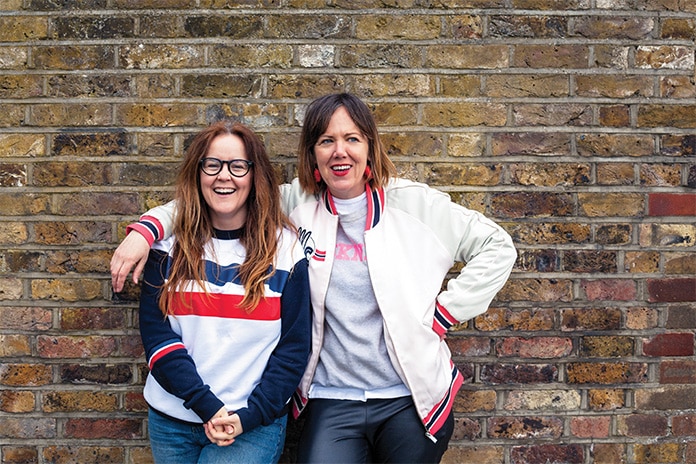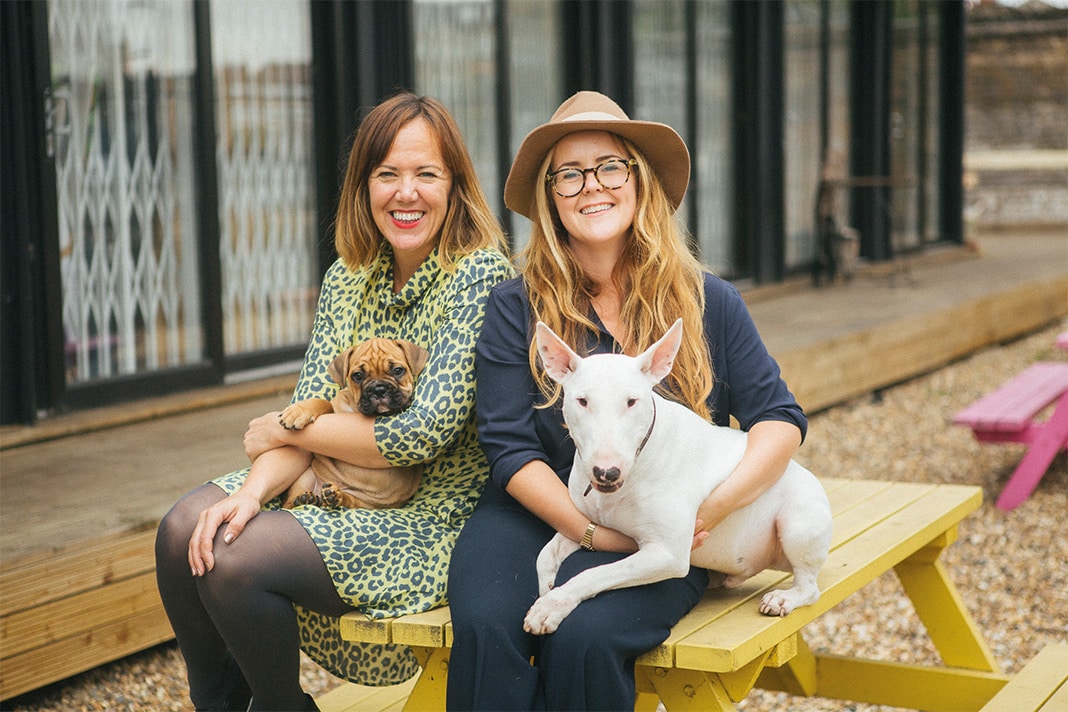Nikki Cochrane and Kathryn Taylor on empowering mums to kickstart a career in digital
Tell us about Digital Mums – why did you start it and what experience did each of you bring to the company?
Kathryn and I launched Digital Mums in 2014 to empower women to find #WorkThatWorks by upskilling them with in-demand social media and digital skills so they can find flexible roles that sync with family life.
We were running our own social media agency at the time and realised that we couldn’t possibly support all the small businesses ourselves. We also knew that maternal discrimination in the workplace was a huge problem preventing women from returning to rewarding work that worked around their children.
We recognised that mums could plug this gap if we empowered them with the right digital skills. This is what we do via our Social Media education programmes where we’ve now trained over 1,400 women online, with eight in 10 finding flexible work thanks to us within 12 months of graduating.
Kathryn has worked with some of the most innovative schools around the world, including the Innovation Unit, where she spent four years as Head of Communications and then Head of Digital. It’s here that she took inspiration for our REAL™ learning model of teaching, which is learning by doing IRL whether it’s working with a real life business on our Associate Programme or running a real life social media campaign on our Social Media Management Course. And it gets you job-ready like no other style of training can!
Why is social media knowledge such an empowering tool in today’s working climate?
With 57% of the UK’s 5m businesses using social media for their marketing and the amount they spend on it growing, social media is integral to today’s working world. It’s still a relatively new industry too, meaning there’s plenty of opportunity to make your own mark in it. One of the great things about social media is that it’s hugely versatile, meaning (with the right training!) you don’t have to have a certain career background to find success. It’s a fun and fulfilling career that lets you be creative with content and copy, analytical with strategy and statistics or sociable with influencers and industry experts. And you definitely don’t need to be in an office – a number of our graduates have never even met their clients IRL!

What’s the key to building a successful and sustainable freelance career?
A big part of what we do is empowering women to forge their own careers, become lifelong learners and find the confidence to go out there and get the roles – and pay – they deserve. We call this “do the hustle” and have built in a free four-week course and a bank of resources at the end of our training to help graduates do just that.
Another huge key to success is community. We’re ALL about women helping women and, from the start, set up Digital Mums to be a supportive community to combat the isolation women can sometimes feel both as a mum but also a freelancer. This starts during training, with students teamed up with a peer group of fellow students to learn from and learn with and carries on after graduating in the form of our #DMCollective. We all need people to bounce off – so it’s just finding that virtual team!
How do we address some of the benefits lost from a more traditional working environment?
Technology! This is one of my biggest frustrations when it comes to the current lack of flexible working available in the UK. The world of work has changed unrecognisably because of technological innovation, yet still working 9-5 in an office is seen as the “norm”. Recent research we conducted showed seven in 10 people want flexible work but only 12% have asked for it. Technology has positively disrupted the way we communicate (Slack, Google Hangouts, Zoom), the way we collaborate (Google Docs) and the way we organise our time (Trello), and there’s no better time to be working flexibly.
We just need businesses to ingrain it in their company culture and for people to recognise that flex makes business sense – it’s not an employee perk.
Culture is one key factor that can easily be lost in a less traditional working environment. But it’s about embedding this into a company culture or your way of working from the start. So if you’re a freelancer, mix up where you work from so you’re not always sat at home alone. Schedule monthly meetings with clients IRL or go to events that benefit your job but make you feel connected to other people in your field – you might even hustle some work out of it!






COMMENTS ARE OFF THIS POST